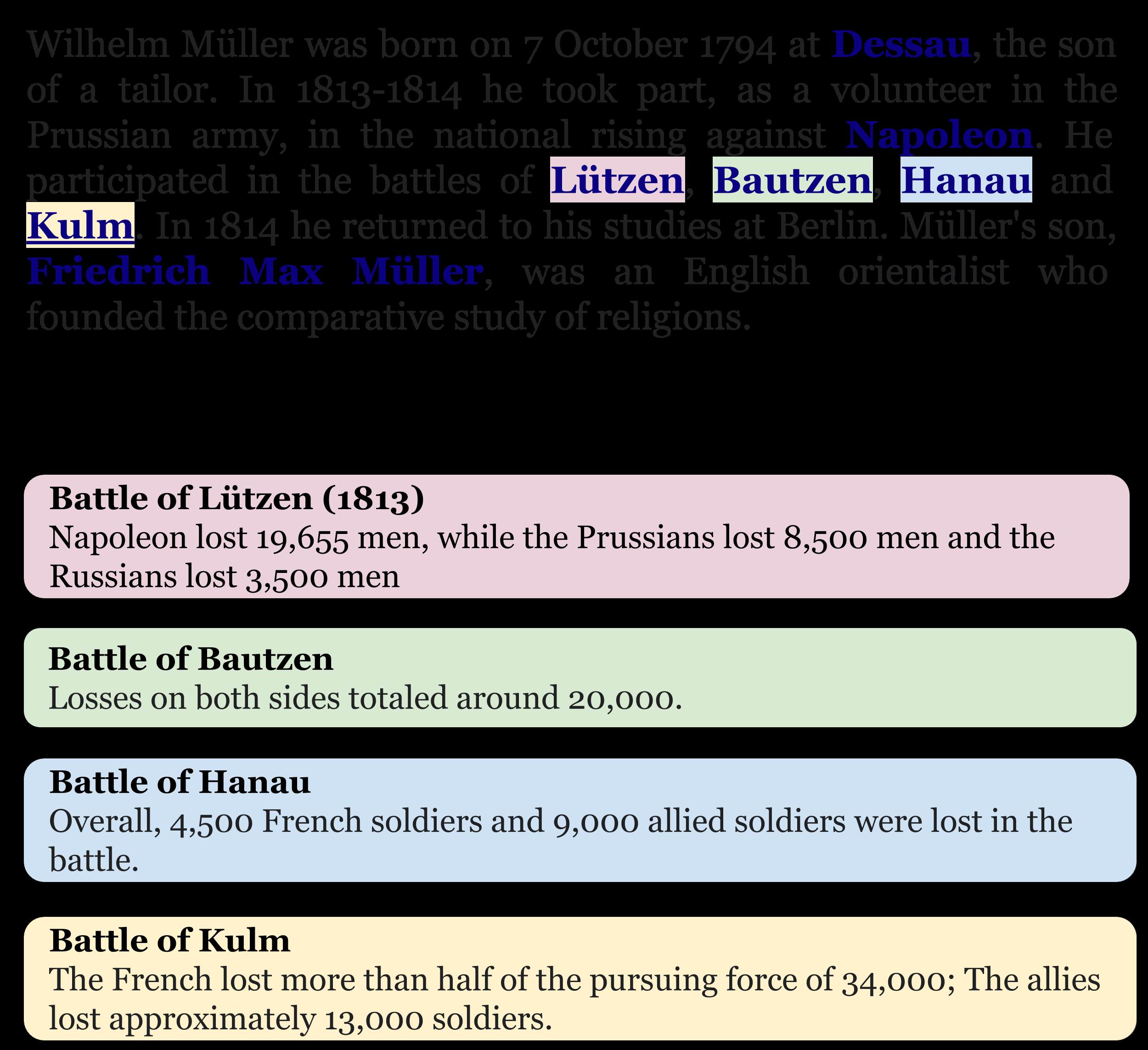MOCHA: A Dataset for Training and Evaluating Generative Reading Comprehension Metrics
Anthony Chen, Gabriel Stanovsky, Sameer Singh, Matt Gardner
Language Generation Long Paper

You can open the pre-recorded video in a separate window.
Abstract:
Posing reading comprehension as a generation problem provides a great deal of flexibility, allowing for open-ended questions with few restrictions on possible answers. However, progress is impeded by existing generation metrics, which rely on token overlap and are agnostic to the nuances of reading comprehension. To address this, we introduce a benchmark for training and evaluating generative reading comprehension metrics: MOdeling Correctness with Human Annotations. MOCHA contains 40K human judgement scores on model outputs from 6 diverse question answering datasets and an additional set of minimal pairs for evaluation. Using MOCHA, we train a Learned Evaluation metric for Reading Comprehension, LERC, to mimic human judgement scores. LERC outperforms baseline metrics by 10 to 36 absolute Pearson points on held-out annotations. When we evaluate robustness on minimal pairs, LERC achieves 80% accuracy, outperforming baselines by 14 to 26 absolute percentage points while leaving significant room for improvement. MOCHA presents a challenging problem for developing accurate and robust generative reading comprehension metrics.
NOTE: Video may display a random order of authors.
Correct author list is at the top of this page.
Connected Papers in EMNLP2020
Similar Papers
IIRC: A Dataset of Incomplete Information Reading Comprehension Questions
James Ferguson, Matt Gardner, Hannaneh Hajishirzi, Tushar Khot, Pradeep Dasigi,

What Does My QA Model Know? Devising Controlled Probes using Expert
Kyle Richardson, Ashish Sabharwal,

A Simple and Effective Model for Answering Multi-span Questions
Elad Segal, Avia Efrat, Mor Shoham, Amir Globerson, Jonathan Berant,

